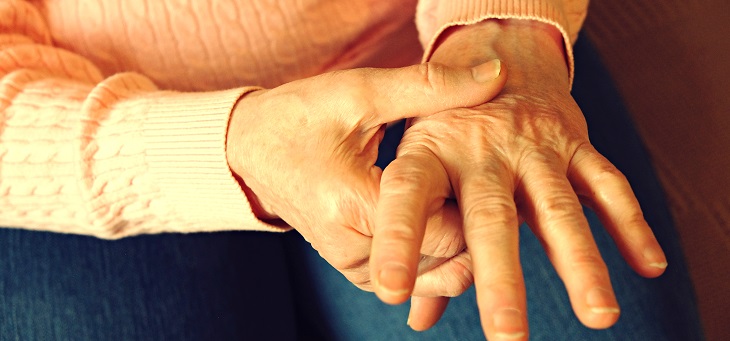Around 456,000 people in Australia suffer from inflammatory rheumatic diseases. These diseases can cause fatigue, discomfort, and difficulty sleeping, which can in turn affect a person’s ability to concentrate, work, and live independently. Studies have found that four out of five of such patients suffer from fatigue daily.
Researchers from the universities of Aberdeen and Glasgow investigated three different types of care offered to 368 people with a range of rheumatic diseases, including arthritis. They wanted to see which types of care improved symptoms the most.
Read: Seven exercises for shoulder arthritis
Participants were split into three groups and assigned either exercise sessions, talking therapy or usual care. Talking therapy included a type of psychological intervention that “targets unhelpful beliefs and behaviours” and aims to replace them with more flexible and positive approaches. The patients in this group received an average of eight sessions on the phone over 30 weeks.
Those in the exercise group had five one-to-one 45-minute sessions over 30 weeks, providing tailored advice. The patients under usual care were given an educational booklet.
The study found that those who were prescribed exercise or cognitive behavioural approaches fared much better than those on standard treatment.
Read: Gut feeling: Scientists discover unusual arthritis link
The group prescribed exercise sessions saw a slightly greater impact on pain levels, fatigue and productivity, while those given talking therapy saw the greatest improvements in sleeping patterns. The benefits continued for six months following the completion of the courses of treatment.
Many participants in the exercise and talking therapy groups also reported improved mental health and quality of life, compared with those who received usual care.
Lead investigator Professor Neil Basu, who carried out most of the research at the University of Aberdeen, but is now at the University of Glasgow, said: “Our study provides new evidence that some non-pharmacological interventions can be successfully and effectively delivered by non-specialist members of the clinical service. It has been encouraging to see that the interventions have led to improvements for participants even six months after the end of the treatment.
“It’s also great to see that these steps were impactful even when delivered via telephone,” Prof. Basu said.
“Since the onset of the pandemic, healthcare services are being reimagined to incorporate greater remote care, however, the evidence base to support this shift has generally been limited.”
Many people with inflammatory rheumatic diseases – including rheumatoid arthritis, lupus and axial spondyloarthritis – could be missing out on an easy way to reduce symptoms and improve their lifestyle.
Here are seven other lifestyle changes that can help to ease symptoms of arthritis.
Maintaining movement
Regular exercise will keep your heart and your joints happy. There is a common misconception that using your joints too much can wear them out. Experts now understand the importance of keeping the body physically mobile for as long as possible.
Remember, just getting outside for a daily walk counts – think in terms of being generally active, moving your body regularly and avoiding being too sedentary.
Maintaining a healthy body weight
When you exercise, the amount of pressure felt by your knee joint is estimated as being the equivalent of seven times your body weight. Therefore, if body weight is kept within the ‘healthy’ body mass index (BMI) range, you’ll be putting less pressure on your joints.
Keep your muscles working
Maintaining good musculoskeletal strength will help to keep the bones and joints healthy.
As well as helping prevent arthritis, good muscular strength can help to reduce the chances of lower back problems, osteoporotic fractures and other muscular-based injuries. Ways to improve or maintain musculoskeletal strength include weight-bearing exercises, such as weight training, walking, jogging, climbing stairs, tennis, and dancing.
Don’t overdo it
A moderate level of exercise, five times a week, is usually ideal for most people and will help ensure joints remain healthy.
Look out for food triggers
Certain foods or food groups can trigger inflammation – the primary cause of arthritis. Some things to look out for include sugar, saturated fats, refined carbohydrates, gluten, and alcohol.
Read: Healthy foods that trigger arthritis symptoms
Do your best to avoid injury
Make sure you always use the correct equipment when playing sports, and ensure that when exercising, you’re using the correct techniques.
Seek medical help if you do injure yourself
Repetitive traumas are a key driver of the condition, so if you don’t get an injury treated properly right away, you could cause yourself significant damage further down the line.
Do you suffer from arthritis? How long have you had the condition? What do you do to limit the symptoms? Let us know in the comments section below.
If you enjoy our content, don’t keep it to yourself. Share our free eNews with your friends and encourage them to sign up.
Disclaimer: This article contains general information about health issues and is not advice. For health advice, consult your medical practitioner.

